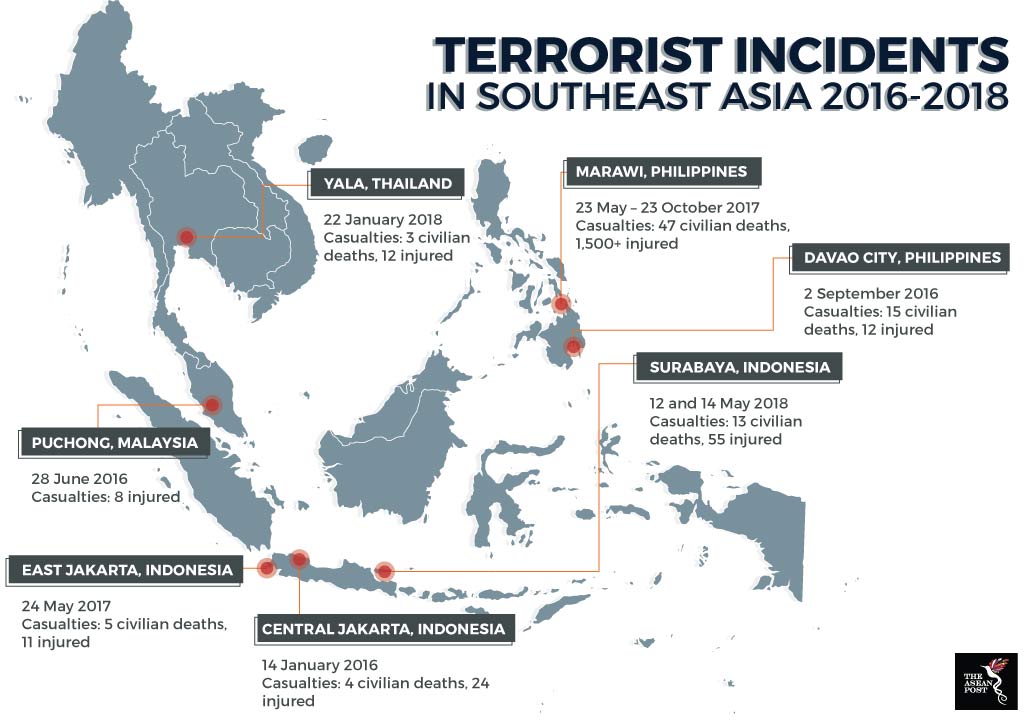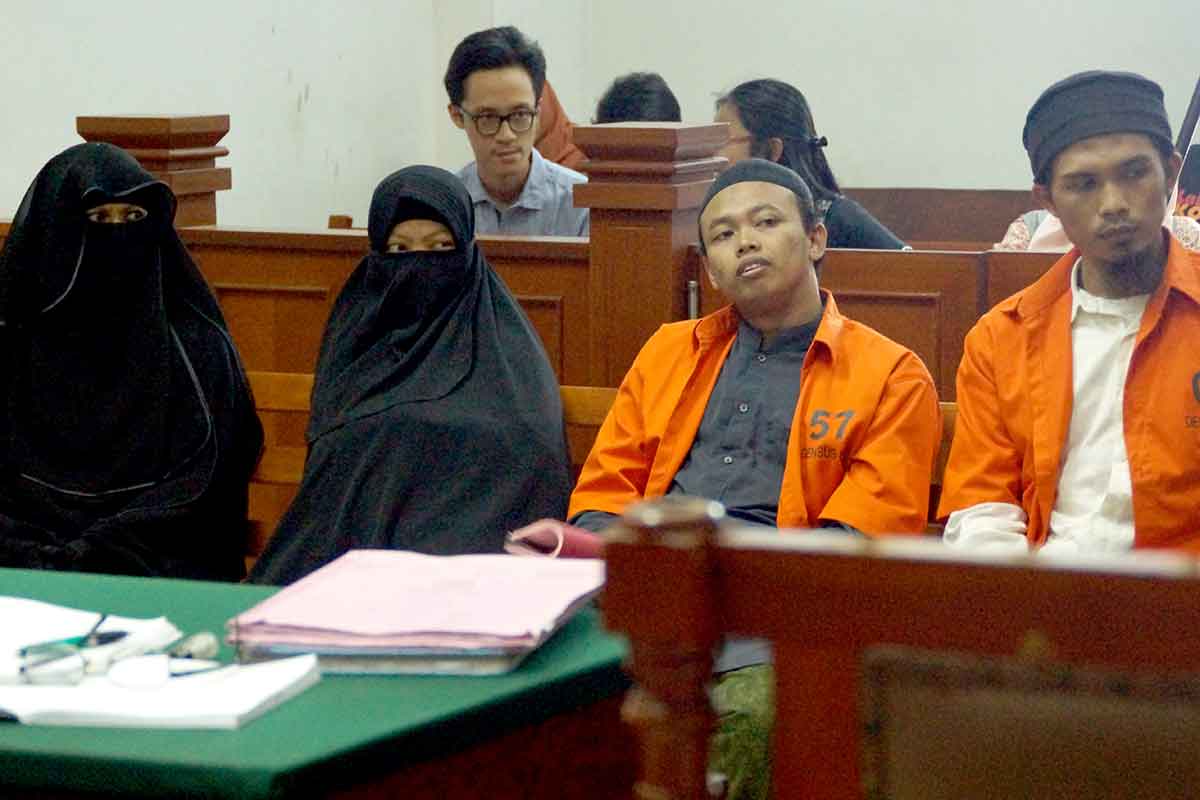May this year saw Indonesia swept by a wave of terror attacks involving suicide bombers that targeted churches and the police headquarters in the city of Surabaya. What set this chain of events apart was the fact that they were carried out by members of the same families. In the incidents, the father and mother either shared militant roles with their children, or took their children along on their mission. Terrorism has become a family affair.
Previously, it has also been noted that terrorism groups like the Islamic State (IS) have fundamentally shifted their strategies to include bigger roles for women. From just being the wombs that birth the “cubs of the caliphate” or an extension of male terrorists, women are now being deployed in terror attacks. In Southeast Asia, this shift was marked by the arrest of two women from a group of seven nabbed over a plot to bomb the Presidential palace in Jakarta with a three-kilogram high-grade rice-cooker bomb in late 2016. One of the women, Dian Yulia Novi, was arrested the day before she was to mount the attack as a suicide bomber.
A regional review of women in jihadism published by the International Centre for Political Violence and Terrorism Research also found that women are increasingly playing the role of jihadi activists, leveraging on new media technologies to radicalise and recruit.

Source: Various sources.
The hands that rock the cradles
Terrorist elements are quick to exploit and prey on those who are marginalised and disenfranchised living in a fermentation of socio-economic impoverishment, social estrangement, protracted oppression, political disillusionment and misinformation. In Southeast Asia, while the female role of being a mother is often revered in a familial unit, women also almost always occupy the lowest rung of the social structure.
In an article on radicalisation in Southeast Asia and women published in the independent academic and research platform, the Conversation, National University of Singapore’s Visiting Fellow, Serina Abdul Rahman and S Rajaratnam School of International Studies’ Senior fellow, Christopher H. Lim stressed that the combination of social constraints and persecution, misinformation and restriction on being critical in religious matters, and role as teacher and enforcer of all things religious at home, exposes the Southeast Asian society to women taking up roles as agents of radicalisation.
“In other words, women who are under the most mental, physical or emotional pressures seem to find a sense of power that they are unable to exercise in other parts of their lives by compelling religious compliance in those closest to them. Dictating religious practice becomes a way to exercise some form of control. The promise of a happier afterlife may also provide some sustenance.
“If such women rely on a single source of Islamic learning, and that source is a radical one, they can be convincingly poisoned by extreme teachings. From here, it is not difficult to envision children being imbued with radical thought as well. All of these factors combined create the perfect setting for women to disseminate radical Islamic beliefs, both intentionally and unintentionally,” stated the article.
The importance of women in counter-terrorism
A study on gender dynamics in IS recruitment propaganda by the Carter Center stressed that the reluctance to view women militants and terrorists as independent and voluntary may lead to simplistic explanations based on traditional gender stereotypes. It stressed that the absence of coherent analysis on the motivations and roles of women in terrorism can lead to counter-productive targeting when dealing with the rise of radicalisation among women.
“Just as it is important to acknowledge women’s role as independent perpetrators of terrorism, it is necessary to recognise their pivotal role in creating the foundations for sustainable and inclusive approaches to peace and security. Any meaningful approach to preventing violent extremism must engage women activists and community leaders as frontline decision-makers. Given their social capital, fluency in cultural vocabulary, and extensive local knowledge, women are an important asset in shaping the discourse,” stressed the study.
Terrorism is traditionally a male domain. However, the participation of women is on the rise. Terror groups are taking advantage of this development through gender-focused narratives that resonate with the motivation and purpose seeking of women who have been disempowered and disenfranchised. Counter-terrorism efforts through a gendered lens is key to halting the rise in radicalisation among women.
Related articles:
‘Our Eyes’ to combat terrorism
